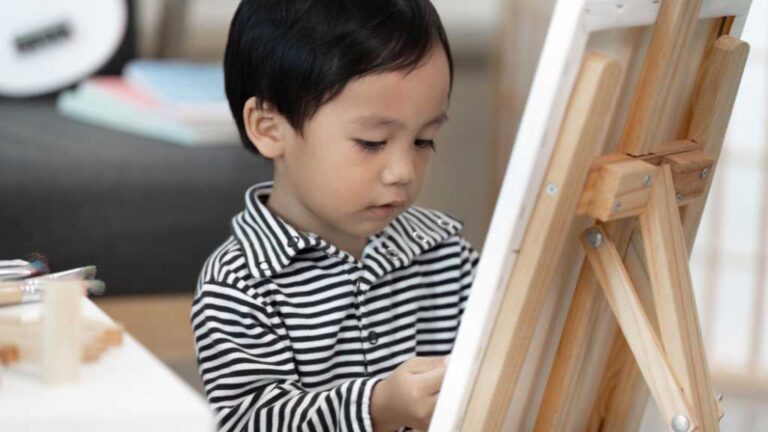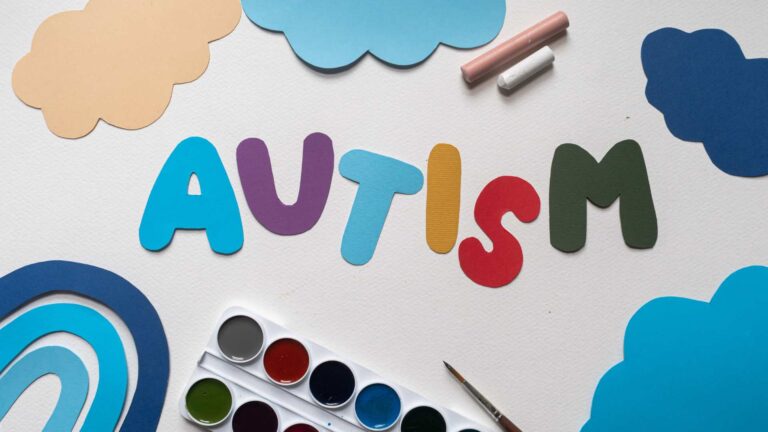Table of Contents
How do books help children with autism understand themselves?
Books hold the power to open new worlds, reflect personal experiences, and nurture empathy. For children on the autism spectrum, finding stories that resonate with their own lives can be transformative. That’s why exploring the best books for kids with autism isn’t just about reading; it’s about giving children mirrors that reflect their identities and windows into how others think and feel.
How do books help children with autism understand themselves? Simply put, they validate experiences that may otherwise feel isolating. A relatable character can reassure a child that they’re not alone. A story about difference framed as strength can inspire self-acceptance. And for parents and caregivers, books about autism provide valuable insights into their child’s world, helping them build stronger connections.
In this blog by ABA Centers of Tennessee, we’ll explore why books about autism are essential, highlight ten of the most recommended titles for children and teens, and reflect on the many benefits these stories bring to families.
Why Books About Autism Are Important
Representation matters. When children see characters who think, feel, and experience the world as they do, it normalizes their differences and helps them build confidence. Research supports that authentic representation in literature improves self-worth and reduces feelings of isolation among autistic readers.
For neurotypical siblings and peers, books also play a vital role. They provide a way to understand autism beyond stereotypes or medical jargon, encouraging empathy and inclusion. Parents and caregivers, meanwhile, gain tools to support their children better, mainly when books include practical guides, conversation starters, or insights from autistic voices.
Importantly, many of the best books for kids with autism are written by authors with autism or developed with their input. This participation ensures authenticity and moves the conversation beyond outdated “deficit-based” models. Instead, these works celebrate neurodiversity and highlight the strengths, challenges, and humanity of individuals on the spectrum.
The 10 Best Books for Kids with Autism
Here are ten highly recommended titles drawn from leading autism advocacy groups, therapy organizations, and educators. Together, they span picture books for young children, novels for tweens, and empowering memoirs for teens.
This picture book tells the story of Zane, a young zebra who worries his classmates only notice his “autism stripe.” With his mother’s help, Zane learns that all his stripes, curiosity, kindness, honesty, and yes, autism, make him who he is.
For young children, the metaphor of “stripes” provides an affirming, easy-to-grasp lesson in self-acceptance and pride. Parents will also appreciate the reading guide included in the book.
Bixby Alexander Tam, nicknamed Bat, is a boy on the autism spectrum who finds joy and purpose when his mom brings home a baby skunk in need of care.
Bat’s focus on routines, special interests, and relationships provides a realistic, empathetic look into life on the spectrum. This story is engaging for children while also offering parents valuable insights into family dynamics.
Written by an author with autism, this novel follows Addie, an eleven-year-old girl who campaigns for a memorial to women persecuted as witches, because she identifies with their experience of being misunderstood.
A Kind of Spark is a powerful book about self-advocacy and identity, giving tweens with autism a relatable voice and parents a deeper understanding of how difference can inspire resilience.
Told from the perspective of Catherine, a girl whose brother has autism, the story explores sibling dynamics and the meaning of “normal.”
Although not written from an autistic perspective, Rules highlights family relationships and helps children with autism understand how neurotypical siblings might feel, while also promoting empathy in the wider family.
Narrated by Jason, a twelve-year-old non-verbal boy with autism, this novel follows his journey to find community through writing.
Jason’s story validates the inner lives of non-verbal children and challenges stereotypes about communication. It reminds parents that their child’s silence doesn’t mean a lack of thoughts, feelings, or creativity.
Written by an adult with autism, this guidebook uses humor, illustrations, and practical advice to decode confusing social “rules.”
It’s an essential resource for tweens and teens learning to navigate social situations. Parents can also use it as a bridge to discuss challenges openly and empathetically.
This widely acclaimed novel is told from the perspective of Christopher, a fifteen-year-old boy who approaches life with logic and precision as he investigates a neighborhood mystery.
Christopher’s voice is both relatable and empowering for teens with autism, while also helping neurotypical readers better understand sensory experiences and different ways of thinking.
Written by a non-verbal thirteen-year-old Japanese boy using an alphabet grid, this memoir answers questions about life with autism through short essays.
It offers a rare and profound first-person insight into the thoughts, emotions, and sensory world of a non-verbal autistic child. For parents, it’s a transformative reminder of the depth and complexity of their child’s inner life.
Renowned scientist and autism advocate Temple Grandin shares her autobiography, explaining how her visual thinking shaped her career and perspective.
Her story is inspiring for older teens, showing how autistic strengths, like pattern recognition and focus, can lead to success. Parents gain a model for encouraging their child’s unique talents.
Though written primarily for parents, this book reframes autism as a natural way of being rather than something to “fix.”
Teens may find its affirming message empowering, while parents gain practical, compassionate strategies for supporting their child with empathy and respect.
Books for Kids with Autism vs. Books for Teens with Autism: Why Age Matters
When choosing the right books for kids with autism, it’s important to remember that needs change as children grow. A picture book for a five-year-old won’t serve the same purpose as a memoir written for a teenager. That’s why families should explore both age-appropriate and autism-friendly stories, making sure they support each stage of development with the right kind of representation.

For young children, stories like All My Stripes or A Boy Called Bat use simple language, engaging illustrations, and relatable characters to introduce self-acceptance, friendship, and family dynamics. These books help lay the foundation for understanding autism in a gentle, affirming way. Reading them together as a family can also spark conversations and help siblings build empathy early on.
On the other hand, books for teens with autism, such as A Kind of Spark, Anything But Typical, or The Curious Incident of the Dog in the Night-Time, address more complex themes. Topics like identity, self-advocacy, communication, and independence resonate more strongly during adolescence. For teens, seeing characters who face similar challenges while carving their paths provides reassurance and empowerment.
Age-appropriate literature also benefits parents and caregivers. It provides tools to guide children at different developmental stages, whether that’s helping a younger child recognize their strengths or encouraging a teen to embrace their identity. Together, books about autism serve as building blocks for lifelong self-understanding, confidence, and stronger family bonds.
Building Bridges Through Stories
At their best, books are more than entertainment; they’re tools for healing, growth, and connection. The best books for kids with autism remind children that their experiences matter, their voices deserve to be heard, and their differences are worth celebrating. For parents, they offer a roadmap for empathy and support, shifting the focus from deficits to strengths.
If you’re a parent, caregiver, or educator, consider exploring these titles with your child. Read them together, discuss their themes, and allow them to spark conversations about identity, resilience, and acceptance. And if you’d like further guidance, remember that professional support is available. At ABA Centers of Tennessee, we provide diagnostic testing, early intervention, and personalized ABA therapy to help children and families thrive.
To get additional autism support, call us at (844) 423-9483 or contact us online.
Books can open the door, but walking through it, with the proper support, can change everything.





